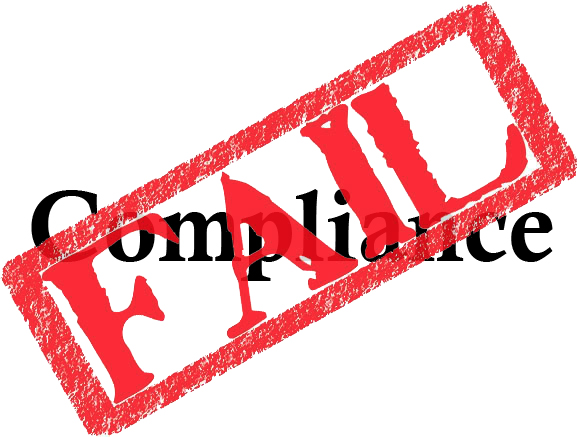With significant clusters of COVID-19 infection among employees—16,000 cases and 86 deaths documented by the CDC through May 2020 — the food processing and distribution industry faces significant challenges in reopening their facilities and ramping up to full capacity. Technology for health and safety access governance and intelligence, along with guidelines from the CDC and OSHA, can help support food companies in the automation of certain compliance activities and a safe return-to-work strategy.
Designated part of the essential critical infrastructure by the federal government at the onset of the pandemic in the spring of 2020, the food supply chain needs active solutions to protect its workforce. But there’s more to this back-to-work transition. Workers need to feel safe and trust that new security, safety and compliance processes have their best interests in mind—transferring to an overall positive experience with their employer.
In the age of contagion, the food industry requires ways to communicate better with the workforce, identify and isolate areas of contagion and also deal with the lingering presence of potential bioterrorism, insider threat and cyber-attack. It’s a multi-faceted and complex workspace we’re reentering, one that takes coordination of technology, people and processes. Without it, food suppliers risk plant shutdowns and loss of business continuity.
Bioterrorism and insider threat remain an active part of the supply chain landscape. In fact, according to a June 2020 Wall Street Journal Pro Research Survey of cybersecurity executives at nearly 400 companies, 67% were concerned about malicious insiders. Remote workers and lax controls have exacerbated the situation and rising threats include malicious employees, accidental negligence, contractor or vendor misuse and account compromise.
The Landscape of Collaboration
The ongoing coordination between human resources (HR) and security is a collaborative effort that bolsters food defense in a COVID-19 world. Fueled by digital transformation, converged physical security and HR management solutions are wound together tightly in a coordinated and analytical approach to keep food industry employees safe and operations running smoothly.
These departments, once siloed and co-existing without direct interaction, are benefiting from software’s move to the cloud and open operating platforms, which provides increased opportunity for real-time integration of HR, security and facilities technologies. Moving to a converged approach across all departments, including HR, IT/cyber and operational technology (OT)/SCADA—can effectively secure our most critical food production and distribution resources while actively enforcing compliance and company policies, including COVID-19 mandates. In addition, physical security access governance, in a holistic manner, protects food industry workers and processes from compromised identities, systems and insider threats.
HR and physical security now have the ability to share data-insights to prevent, detect and mitigate the spread of contagions. With this convergence, organizations have the information they need to actively defend and protect the workforce, focusing on the human side of security to yield a positive experience.

Enabling a Safe and Healthy Return to Work
This time of unprecedented change has triggered a tectonic shift in the way organizations have been dealing with the health, security and safety of their workforce. Sensing a coming tsunami, HR, corporate real estate and physical security leaders are realizing that they must stop operating in silos and embrace a holistic approach. Enterprise response and recovery plans have become a major catalyst for converged security, as it has proven to be the most effective way to manage workspace access, enforce workforce security, safety and privacy.
Reopening with Technology at Your Back
Physical identity access management (PIAM) software, including visitor identity management (VIM) are convergence platforms that deliver identity and access governance, health and safety intelligence and compliance validation across the enterprise. PIAM provides a safer work environment by managing physical, logical and operational technology access for employees and visitors, actively enforcing company policies, compliance and industry regulations with built-in best practices and regulatory controls. Automated policy-driven background checks yield real-time vetting of visitors, contractors and employees while validating and identifying any policy violations. PIAM and VIM keeps facilities and workers safe, making sure the employees and visitors only have access to the areas, data and assets they need, including vital food processing areas where deliberate sabotage needs to be kept at bay.
While prevention of bioterrorism and insider threat is ongoing at food distribution, production and processing facilities there’s been a notable shift during the pandemic that focuses on the health and safety of workers. Security is no longer simply about keeping the bad guys out; it’s about safety and protecting workers from unsafe behavior.
Workforce health and safety access governance software solutions help organizations open safely in a frictionless, controlled and secure way by automating and enforcing COVID-19 related policies and procedures. Automated batch email/text notifications with self-service links send requests to the remote workforce for self-attestation and self-reporting offsite and enable access by the worker to the facility based on health, travel and other company policies.
Here’s how it works: An employee completes the self-reporting health and travel questionnaire through a mobile app, which triggers automated workflows based on those answers. These health questionnaires collect data and document employee activity during lockdown, including infection, symptoms or exposure. The employee’s self-attestation request comes to the manager for action, and based on answers the worker is considered high risk and per policy their access to the facility is revoked for 14 days while they are in quarantine. A similar self-attestation and workflow then applies to reinstatement for the employee. This reporting and workflow can be configured specifically to the facility. Enterprises can further customize their visitor identity management to provide clear communication of current policies during the outbreak, reinforcing WHO best practices.
Focus on Health and Safety
Health and safety access governance and intelligence provides prescreening support of workforce site entry with automated policy enforcements. Pre-registered and onsite visitors/contractors check-in/check-out with prescreening, watch list and other checks prior to access. In the production or distribution facility, health and safety analytics track confirmed or potentially exposed COVID-19 workers, identify exposed areas for lockdown and/or sanitization, social distancing violation, location heat map and other actionable health & safety analytics.
PIAM also allows you to automate your communications and deliver clear expectations and procedures to your workforce, visitors and contractors pre-visit and onsite—adding to a seamless experience.
Security convergence delivers a comprehensive, holistic solution across the entire food value chain, from sourcing to production to retail distribution. Human resources and physical security have teamed up—yielding real-time data that can prevent, detect and mitigate the spread of contagions. With this convergence comes greater situational awareness that defends and protects the workforce, with a strong focus on safety and building trust between worker and employer.






